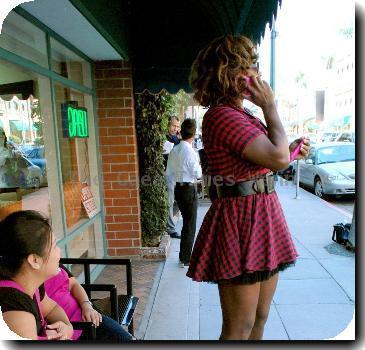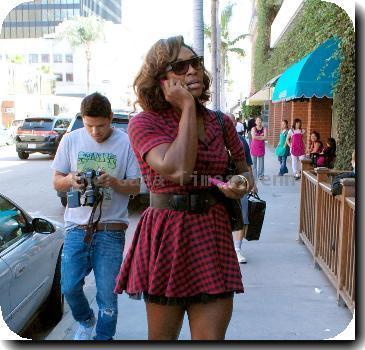Unlike Schumacher and Armstrong, Justine Henin’s comeback feels completely right
By John Leicester, APFriday, January 22, 2010
Henin is exception to comebacks rule
PARIS — Sporting comebacks, often, are like breakfasting on the dregs of last night’s champagne. The taste is still more or less the same but the fizz has mostly gone.
But Justine Henin is looking very promising as an exception to the loose rule that sports people, once they retire, are often best advised to stay that way.
Her comeback tastes as right as much as her shocking departure from tennis in 2008 seemed wrong. Going back to the champagne analogy, her return to the women’s tour that lost some of its sparkle when she walked away feels like being given a second bottle to uncork.
Seeing her back on court and playing so well — she advanced Friday to the last 16 at the Australian Open — offers the prospect of 2010 being a vintage year, after a few non-vintage ones, for the women’s game.
Already, in her first month back, she has served up matches that were instant classics: a final she narrowly lost to Kim Clijsters in the Brisbane International and a second-round Australian Open win over Elena Dementieva. Both were far more entertaining than, say, the yawnathon that was last year’s French Open final — one of many matches that proved how sorely she was missed. What a joy to see that sublime backhand of hers again.
Henin has unfinished tennis business. That is just one reason why her comeback feels more comfortable and genuine than those of Lance Armstrong and Michael Schumacher. Their return to competition cannot significantly add to the giant marks they have made on their respective sports.
Given that they already hold the big records — seven consecutive Tour de France victories for Armstrong and seven Formula One world championships for Schumacher — more wins for either one this year would only tell us what we already know: They are the best of their generation.
The same might have been said of Henin had she not abandoned tennis just 11 days before she was due to defend her title at the 2008 French Open. Hers was a brutal departure, far harder to understand than the reasons now bringing her back. One minute, she was No. 1 in the world, with seven majors. The next, she was gone. Making it perfectly clear that she was done for good, Henin asked that she be wiped from the WTA rankings.
Without her, women’s tennis wobbled like a chair missing a leg. No single player filled the void that her retirement created. Serena Williams, almost by default, proved the strongest among those Henin left behind, winning another US Open, Australian Open and Wimbledon title to bring her major tally to 11.
Henin, meanwhile, went in search of herself, trying to answer the question: Without tennis, who was she? She dabbled in television, fashion, music and cooking. She worked for UNICEF, loving that women and children she met on a mission to war- and poverty-scarred eastern Congo didn’t know who she was. She fixed her tired body, getting surgery on a knee, and tasted real life after “living in this bubble for all these years.”
“You have to discover who you are and to build another life and it’s like it’s a new birth, you know? And that’s not that easy,” Henin said when she passed through Roland Garros last year for the unveiling of a plaque in her honor.
And she insisted that she wouldn’t play again.
“No, no,” she said. “I don’t need the competition anymore to be happy.”
Yet, at the very same time, the seeds of her return were being planted. Seeing Roger Federer win that French, the only major missing from his resume, made her thinking about the only one missing from hers — Wimbledon. It “titillated a part of me which I thought was extinguished,” she said.
And, she realized, tennis and happiness do not have to be incompatible. The new challenge she has now set herself — to play competitively without becoming totally consumed and personally lost in the process — is worthy and another reason why her comeback is intriguing. One can only wish her well in finding that balance between life on and off the court.
“It’s not one or the other,” she says. “It can be one and the other.”
If there is any rust from her 20 months away from the women’s tour, it barely shows. Henin still moves extremely well and selects her shots with the cunning of a chess Grand Master. At age 27, she has time to close the gap on Williams in majors and, with Wimbledon in mind, she is forcing herself to come to the net during matches because “it’s the way I have to play if I am to get better on grass.”
Dementieva, for one, graciously conceded that she’d been taught a lesson in their absorbing encounter that she lost 7-5, 7-6.
“Playing against her, you really can learn a lot and improve your game,” the 2008 Olympic gold medalist said. “A great player.”
Given that Henin is now talking about competing at least until the 2012 London Olympics, Dementieva will not be the last to say that.
John Leicester is an international sports columnist for The Associated Press. Write to him at jleicester(at)ap.org.
Tags: 2010 Australian Open Tennis Championships, Australian Open Tennis Championships, Cycling, Events, French Open Tennis Championship, Kim clijsters, Men's Tennis, Paris, Roger federer, Serena williams, Wimbledon Championships, Women's Sports, Women's Tennis

